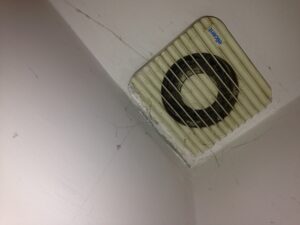If you’ve been paying attention to news stories surrounding accidental pool electrocution instances and drownings, you may be rightly concerned about the safety of your community pool or perhaps the one in your own backyard. Human error is nearly always the culprit in pool electrocutions, but with the right maintenance and tools, these deadly situations can be prevented. In addition to the following tips, it’s crucial that your pool is installed and regularly inspected by a certified technician.
Common causes of pool electrocution
According to the U.S. Consumer Product Safety Commission, 60 deaths and nearly 50 serious shocks had been reported between 1990 and 2003 involving electrical hazards in and around swimming pools. Here are some of the most common culprits of pool electrocutions:
- Faulty electrical installation: Despite popular belief, most pool electrocutions are not caused by underwater pool lights. Rather, incorrectly installed wiring often creates stray electrical currents that are interconnected among all components of the pool, from the motorized pump to its metal handrails. If left ignored, these stray currents can enter the water and shock swimmers.
- Pool lighting: When pool lights have not been correctly bonded or grounded, they can send electricity directly through the water and shock those in the pool. In fact, faulty pool lights can send electrical currents through the water even when they are turned off. As a general rule of thumb, any pool feature that is connected to power and placed underwater poses a hazard.
- Electronics falling into the water: The same basic rules governing bathtub safety and handheld electronics can be applied to pools. When a plugged-in appliance or piece of equipment falls into a pool, it instantly sends a potentially deadly electrical current through the water.
Safeguard your pool against electrocution
- Bonding and grounding are the best defenses you have against pool electrocution. Grounding involves electrically attaching powered equipment to the ground. If there’s a short in the system, the circuit breaker trips to shut off power almost instantly, effectively rendering the equipment harmless.
Bonding involves electrically connecting all parts of the pool, such as the pump, heater and ladder, to build a grid. Without bonding, if one piece of equipment gets energized from a fault in the system, the electrical current will immediately aim for a less energized component, which includes people.
- A ground-fault circuit interrupter, or GFCI, can be a literal life-saver in preventing electrocution as soon as it begins. GFCIs monitor the level of electrical current flowing and will instantly shut off power if an imbalance is detected. These simple tools could have prevented many past electrocutions covered in the media if they had been installed. Portable GFCIs can usually be purchased for less than $30 and require no special tools to install.
- Keep the pool deck clear of electronics and power cords (at least 10 feet from the water), to prevent an electronic device from falling or being pulled into the water. Choose battery-powered devices to have around the pool if possible.
Get your pool inspected by licensed electrician
Frankly, human error is often at the root of many pool electrocutions, from faulty wiring to failing to ground or bond electrical components correctly. But with the right help, pool electrocution is preventable. If you’re looking to install a pool for the home or safeguard the one you already have, call Prairie Electric and speak to one of our experienced electricians to see how you can better protect the ones you love.


